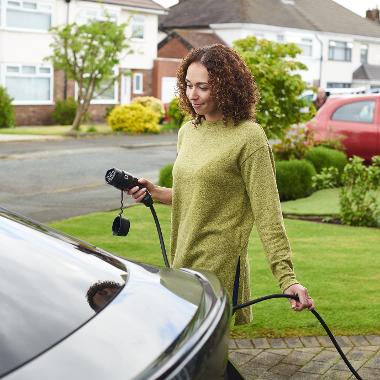Electric Vehicles (EVs)
To encourage sustainable travel and reduce air pollution, Sunderland City Council supports the uptake of electric vehicles (EVs). We acknowledge the uptake of electric vehicles is accelerating and that zero emission vehicles can deliver significant benefits, particularly in relation to air quality and health for our residents and visitors.
Wear Charging - where to charge your EV in Sunderland
Sunderland has a variety of council and privately owned and managed EV charging stations, services provided by companies such as Fastned, SWARCO, Connected Kerb, Ionity and InstaVolt give residents and visitors a selection of charging options throughout city.
Find your nearest charging point here:
This map's purpose is to signpost to EV charging points that are available to the public in Sunderland. Any service queries or issues that arise with any charging points will need to be directed to the charging point provider. Please contact the charging point provider in the first instance. Alternatively please email: evcharging@sunderland.gov.uk where queries will be forwarded on to the relevant charging provider.
Switching to EV
Switching to EV is a great way to reduce your environmental impact. EVs are a more sustainable alternative to petrol and diesel cars. They significantly lower carbon emissions and improve local air quality.
EVs can offer benefits, including:
- Lower maintenance costs
- A quieter driving experience
Though the initial cost can be higher, EV's are cheaper to run and maintain over time, and the second-hand market is expanding, making them more accessible and affordable.
Myth Busting
Myth 1: Electric vehicles are 'dirty' producing as many carbon dioxide emissions as a petrol or diesel vehicle.
Fact: EVs emit zero emissions on the road, and the energy to power them is only getting greener. Pure EVs run on electricity. This means that, unlike petrol and diesel cars, they emit zero tailpipe emissions.
Myth 2: Electric vehicles aren't suited to long journeys
Fact: Pure electric vehicles have an average range of 197 miles, with many models able to go further on a single charge.
Myth 3: The grid can't support an increase in electric vehicle charging
Fact: Estimates show that if we all switched our petrol or diesel vehicles to electric overnight, we would experience only a 10% increase in demand, fitting comfortably within the grid's capacity.
Further details can be found here:
Electric vehicles: debunking the myths - Energy Saving Trust
Busting the myths and misconceptions about electric vehicles | National Grid Group
Have your say
To provide feedback and comment on EV charging in Sunderland contact: evcharging@sunderland.gov.uk







